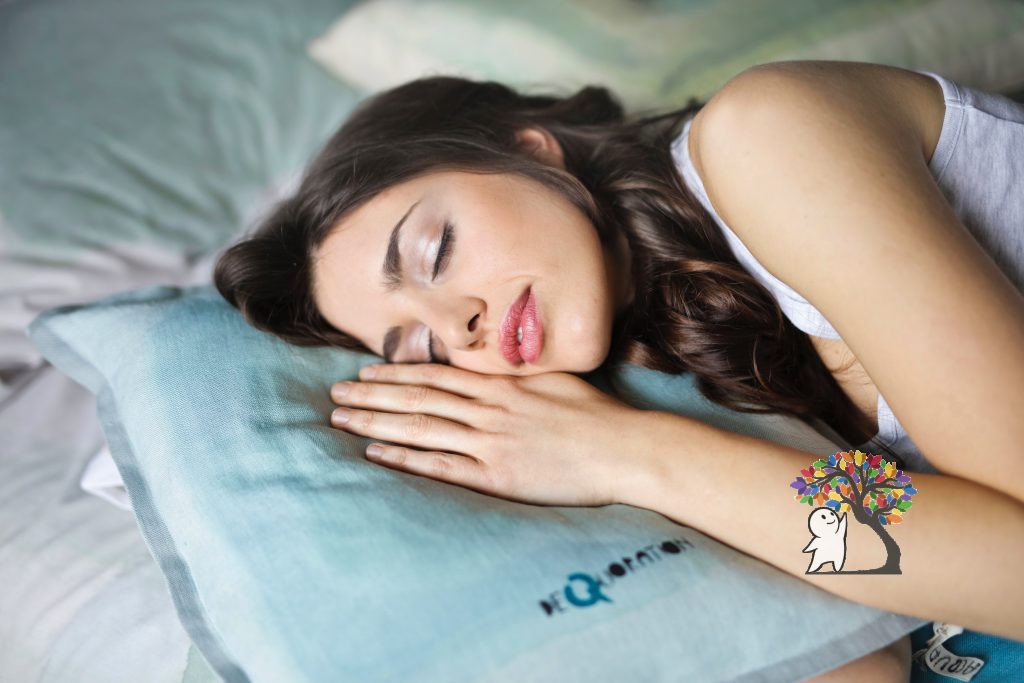12 Facts About Naps That Will Surprise You

As nations across the world develop and population grows, society is very quickly evolving its every day activities into more productive and efficient processes. A huge range of benefits comes from this evolution. However, it also comes with sacrifices: people working longer hours, getting less vacations, losing night’s sleep because of stress, etc. To cope with this additional workload and stress, the concept of naps has popularised to a degree that napping in the middle of the day is normal in countries like China, India, and most of Europe (Lehnardt, 2016). There’s even a napping competition called the National Siesta Championship held in Madrid (Hall, 2019). To most people, napping is just a way of taking a break during the day or making up for lost night’s sleep. However, there are many things that people don’t know about naps. So, in this article, I will be addressing 12 facts about naps that will surprise you.

There are different types of nappers
Did you know that napping is so popular that they even created three categories to separate nappers? The three types of nappers are: habitual, planned, and emergency (Hall, 2019). Habitual nappers are the people who take naps at the same time every day. Planned nappers, on the other hand, plan to nap before they get tired and sleepy. Finally, emergency nappers are people who wait until they get so tired that they need to stop their activities and take a nap. Which type do you think you are?
One bad nap can throw off your entire sleep cycle
Although napping can have so many benefits, one bad nap can have negative effects. Do you feel groggy or can’t sleep at night after you napped during the day? A bad nap can cause sleep inertia, making you feel groggy and disoriented after waking up from a nap (Mayo Clinic, 2018). Additionally, long naps, and short naps to a lesser degree, might have an impact on your night time sleep. So, make sure to have a strict time frame for napping, and setup alarms if you feel like you might nap for longer than you should (Fleming, 2016).
Naps cannot fully make up for lost night’s sleep
There is a belief that if you slept less than you usually do at night, you can just complete the hours by napping. Afterall, the arithmetic works. However, even when you do nap to complete the hours, don’t you feel a difference between sleeping 8 hours at night compared to getting 5 hours of night’s sleep and napping the next day? This happens because napping can disrupt your biological system and as mentioned before, throw off your entire sleep cycle (Fleming, 2016). Additionally, depending on how your sleep cycle works, you might be missing on REM sleeping minutes, which is a very important sleep stage. So, if possible, aim to have a good night’s sleep and do not rely too heavily on napping.
Naps have an ideal duration
Scientists have found that the ideal duration for naps should be between 20-40 minutes, nothing more (Fleming, 2016). Are you looking for a scientifically proven trick to raise alertness during the day? Well, you can combine caffeine with an ideal nap duration. Scientists suggest that you drink caffeine before taking a power nap of 20 minutes. Caffeine takes 20-30 minutes to take effect, lining up with the moment you wake up from your nap (Lehnardt, 2016).
Your body has an ideal nap time
Now that we have addressed the ideal nap duration, here is another scientifically proven tip. According to the University of California-Berkley, the best time to nap is right in the middle of your wake cycle, so 8 hours after you wake up in the morning and 8 hours before you sleep at night. For example, if you woke up at 8 A.M. and went to sleep at 12 P.M., then your ideal nap time would be at 4 P.M. (Lehnardt, 2016).
Naps can improve your immune system
Do you feel like very sick after not sleeping enough the night before? Sleep deprivation increases cytokines, which are molecules known for causing inflammation. It also increases cortisol and norepinephrine, which are known to cause stress (Rosenfeld, 2019). The effect that naps can have on suppressing these hormones has been proven by a study made in 2015 by the Journal of Clinical Endocrinology & Metabolism. The study compared the results of naps in a group of 11 healthy men who were sleep deprived. The group that had a nap showed significantly lower levels of these hormones.
Naps have a positive impact on your memory
Did you know that one of the main functions of night time sleep is consolidating memory? Well, naps can have a very similar effect. In 2010, a study in Neurobiology of Learning and Memory tested the effect that mid-day naps have on memory processes (Rosenfeld, 2019). The study consisted of testing the effects that naps had on a group who was tasked with memorising two sets of objects and comparing it with a group that did not have a nap. The results, surprisingly, showed that the group that had a 90-minute daytime nap had a significantly better retention of the two sets of objects than the other group. So, if you have an exam to take, or something very important to remember, try taking a nap, but only if you have time, of course.
Naps can have the same effects as a full night’s sleep for learning
Even though naps cannot fully replace a full 8 hours of night’s sleep, they can certainly match the effects for learning. A 2003 study conducted in Nature Neuroscience found that people who napped 60 to 90 minutes after learning something performed just as well in a test as people who had a full night’s sleep (Rosenfeld, 2019). So, if you need to learn something fast and cannot afford 8 hours of sleeping at night, then your next best option would probably be to take a 60 to 90-minute nap.
Naps improve alertness and performance
A study conducted by NASA showed that sleepy military pilots and astronauts that had a 40-minute nap performed better by 34% and had an increased alertness by 100% (Lehnardt, 2016). Additionally, it was found that shorter naps were more effective than longer naps, with naps of 30 minutes bringing about a period of impaired alertness (Rosenfeld, 2019).
They can lift your mood
Experts confirm that the relaxation that comes from lying down and resting during naps is known to boost your mood, whether you fall asleep or not (WebMD, 2020). Additionally, research has suggested that napping also has benefits by regulating your emotional state, making you better at handling frustration (Breus, 2018).
They are good for your heart
Naps will benefit your heart because they help lower the blood pressure in your body (WebMD, 2020). A study conducted on people who had undergone mental stress showed that 45 to 60-minute naps were extremely effective at regulating their blood pressure. Therefore, naps can be your best option to recover and regulate your blood pressure.
Naps have a positive impact on your physical health
When done correctly, naps can have a huge impact on your physical performance, whether its accuracy, speed, strength, or reaction time. Sleeping, in general, has a restorative effect on your body, and paired up with naps’ effects on awareness will result in a big improvement in your physical health and performance (Breus, 2018).
To conclude, naps have a huge amount of benefits for both mental and physical health. It can help you cope with stress, high blood pressure, and even improve your memory and learning skills. However, it is important to know how to nap correctly to avoid negative effects such as disruption of your biological clocks, developing symptoms of insomnia as naps can interfere with your night’s sleep, and feeling grogginess and disorientation after waking up from a nap.
References
Breus, M., 2018. 9 Interesting Ways Napping Can Make Your Life Better. [online] Psychology Today. Available at: <https://www.psychologytoday.com/us/blog/sleep-newzzz/201806/9-interesting-ways-napping-can-make-your-life-better> [Accessed 15 October 2020].
Fleming, D., 2016. 12 Facts You Didn’t Know About Napping. [online] MensXP. Available at: <https://www.mensxp.com/health/cure-sleeping-disorders/29938-12-facts-you-didn-t-know-about-napping.html> [Accessed 15 October 2020].
Hall, A., 2019. 7 Fun Facts About Naps You Probably Don’t Know. [online] The Ladders. Available at: <https://www.theladders.com/career-advice/7-fun-facts-about-naps-you-probably-dont-know> [Accessed 15 October 2020].
Lehnardt, K., 2016. 46 Interesting Napping Facts. [online] Fact Retriever. Available at: <https://www.factretriever.com/napping-facts> [Accessed 15 October 2020].
Mayo Clinic, 2020. Napping: Do’s And Don’ts For Healthy Adults. [online] Mayo Clinic. Available at: <https://www.mayoclinic.org/healthy-lifestyle/adult-health/in-depth/napping/art-20048319#:~:text=Some%20people%20simply%20can’t,waking%20up%20from%20a%20nap.> [Accessed 15 October 2020].
Rosenfeld, J., 2019. 8 Scientific Benefits Of Napping. [online] Mental Floss. Available at: <https://www.mentalfloss.com/article/502902/8-scientific-benefits-napping> [Accessed 15 October 2020].
WebMD, 2020. Health Benefits Of Napping. [online] WebMD. Available at: <https://www.webmd.com/a-to-z-guides/ss/slideshow-health-benefits-of-napping> [Accessed 15 October 2020].



Responses